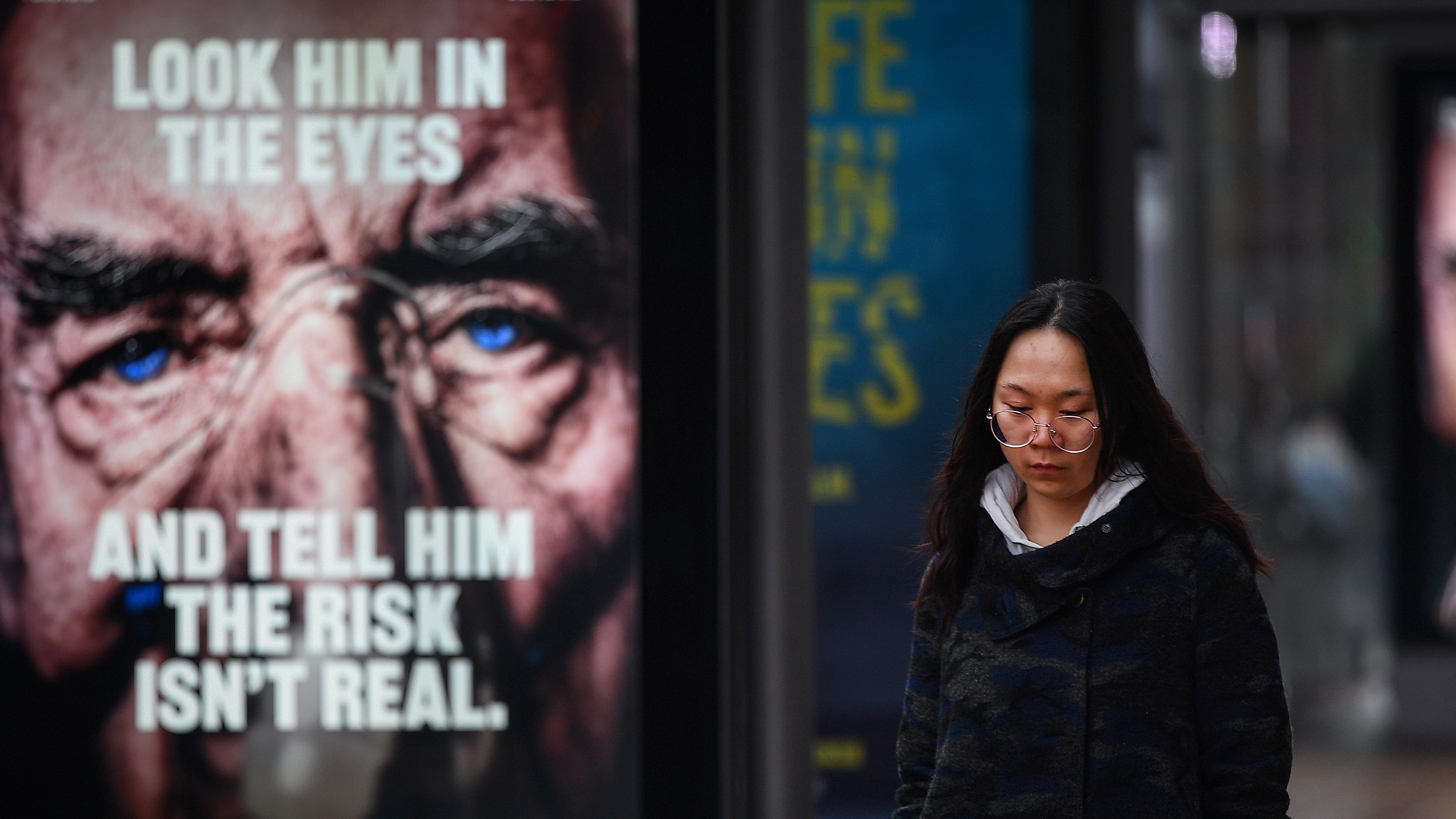How the UK is handling the Kent coronavirus strain
Study finds variant discovered prior to Christmas may be 70% more deadly

A free daily email with the biggest news stories of the day – and the best features from TheWeek.com
You are now subscribed
Your newsletter sign-up was successful
The new Covid variant discovered in South Africa led to hospitals being inundated with younger patients and pushed the country’s health system to its limit.
“Doctors panicked when younger, sicker patients flooded into hospital beds”, The Times reports, with the new variant triggering a “second wave of South Africa’s pandemic”.
The variant “hit South Africa’s healthcare system like a speeding train”, The Telegraph says, as clinics rapidly ran out of oxygen while “full of younger patients in a worse condition”.
The Week
Escape your echo chamber. Get the facts behind the news, plus analysis from multiple perspectives.

Sign up for The Week's Free Newsletters
From our morning news briefing to a weekly Good News Newsletter, get the best of The Week delivered directly to your inbox.
From our morning news briefing to a weekly Good News Newsletter, get the best of The Week delivered directly to your inbox.
In early January, the nation was reporting more than 20,000 cases a day and around 800 deaths, “dwarfing anything seen in the first wave” and pushing medical staff to “breaking point”, the paper adds.
Dr Richard Lessells, whose team helped identify the strain in November, told The Times that hospitals “were getting the sense that something was very different this time around and alarmed at how rapidly infections were escalating compared to the first wave”. He said it was “amazing and terrifying how quickly it came to dominate”.
Cases began to fall around the middle of January after President Cyril Ramaphosa tightened lockdown restrictions and closed South Africa’s land borders. They are now hovering at about 2,500 to 3,000 per day, according to World Health Organization data.
But the speed with which the variant ripped through the country has experts concerned about the potential for further mutations - and a third wave - after the country paused the rollout of the Oxford-AstraZeneca jab citing concerns over its efficacy.
A free daily email with the biggest news stories of the day – and the best features from TheWeek.com
“We know a third wave will occur and it will hit in about three to four months, which is around June and July,” Salim Abdool Karim, who co-chairs the Covid-19 committee that advises the president, told The Times. “The greatest fear is that the new variants would mutate to bypass immunisation which would undermine all our efforts and the third wave would be devastating.”
Joe Evans is the world news editor at TheWeek.co.uk. He joined the team in 2019 and held roles including deputy news editor and acting news editor before moving into his current position in early 2021. He is a regular panellist on The Week Unwrapped podcast, discussing politics and foreign affairs.
Before joining The Week, he worked as a freelance journalist covering the UK and Ireland for German newspapers and magazines. A series of features on Brexit and the Irish border got him nominated for the Hostwriter Prize in 2019. Prior to settling down in London, he lived and worked in Cambodia, where he ran communications for a non-governmental organisation and worked as a journalist covering Southeast Asia. He has a master’s degree in journalism from City, University of London, and before that studied English Literature at the University of Manchester.
-
 How the FCC’s ‘equal time’ rule works
How the FCC’s ‘equal time’ rule worksIn the Spotlight The law is at the heart of the Colbert-CBS conflict
-
 What is the endgame in the DHS shutdown?
What is the endgame in the DHS shutdown?Today’s Big Question Democrats want to rein in ICE’s immigration crackdown
-
 ‘Poor time management isn’t just an inconvenience’
‘Poor time management isn’t just an inconvenience’Instant Opinion Opinion, comment and editorials of the day
-
 A Nipah virus outbreak in India has brought back Covid-era surveillance
A Nipah virus outbreak in India has brought back Covid-era surveillanceUnder the radar The disease can spread through animals and humans
-
 Covid-19 mRNA vaccines could help fight cancer
Covid-19 mRNA vaccines could help fight cancerUnder the radar They boost the immune system
-
 The new Stratus Covid strain – and why it’s on the rise
The new Stratus Covid strain – and why it’s on the riseThe Explainer ‘No evidence’ new variant is more dangerous or that vaccines won’t work against it, say UK health experts
-
 RFK Jr. vaccine panel advises restricting MMRV shot
RFK Jr. vaccine panel advises restricting MMRV shotSpeed Read The committee voted to restrict access to a childhood vaccine against chickenpox
-
 RFK Jr. scraps Covid shots for pregnant women, kids
RFK Jr. scraps Covid shots for pregnant women, kidsSpeed Read The Health Secretary announced a policy change without informing CDC officials
-
 New FDA chiefs limit Covid-19 shots to elderly, sick
New FDA chiefs limit Covid-19 shots to elderly, sickspeed read The FDA set stricter approval standards for booster shots
-
 RFK Jr.: A new plan for sabotaging vaccines
RFK Jr.: A new plan for sabotaging vaccinesFeature The Health Secretary announced changes to vaccine testing and asks Americans to 'do your own research'
-
 Five years on: How Covid changed everything
Five years on: How Covid changed everythingFeature We seem to have collectively forgotten Covid’s horrors, but they have completely reshaped politics